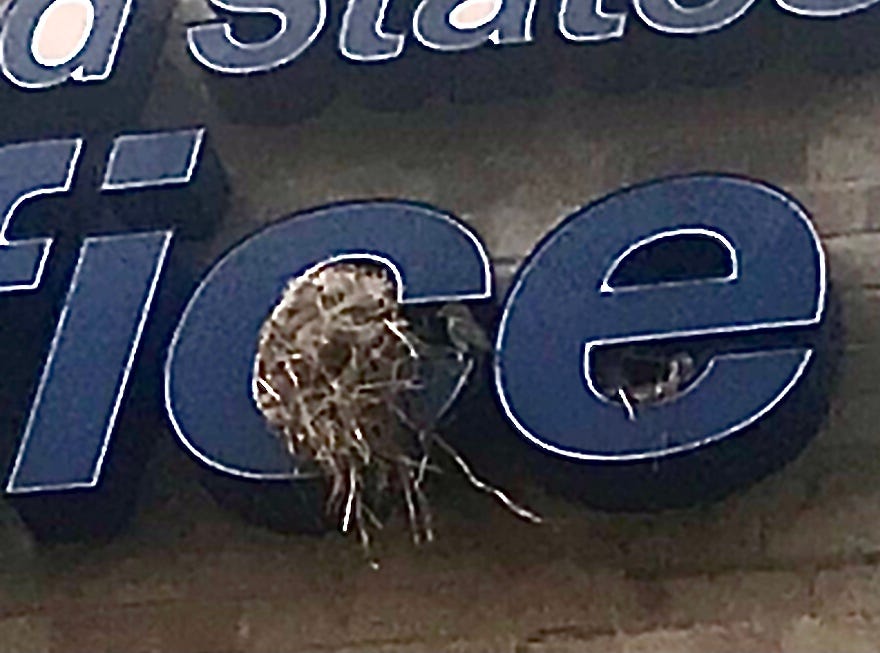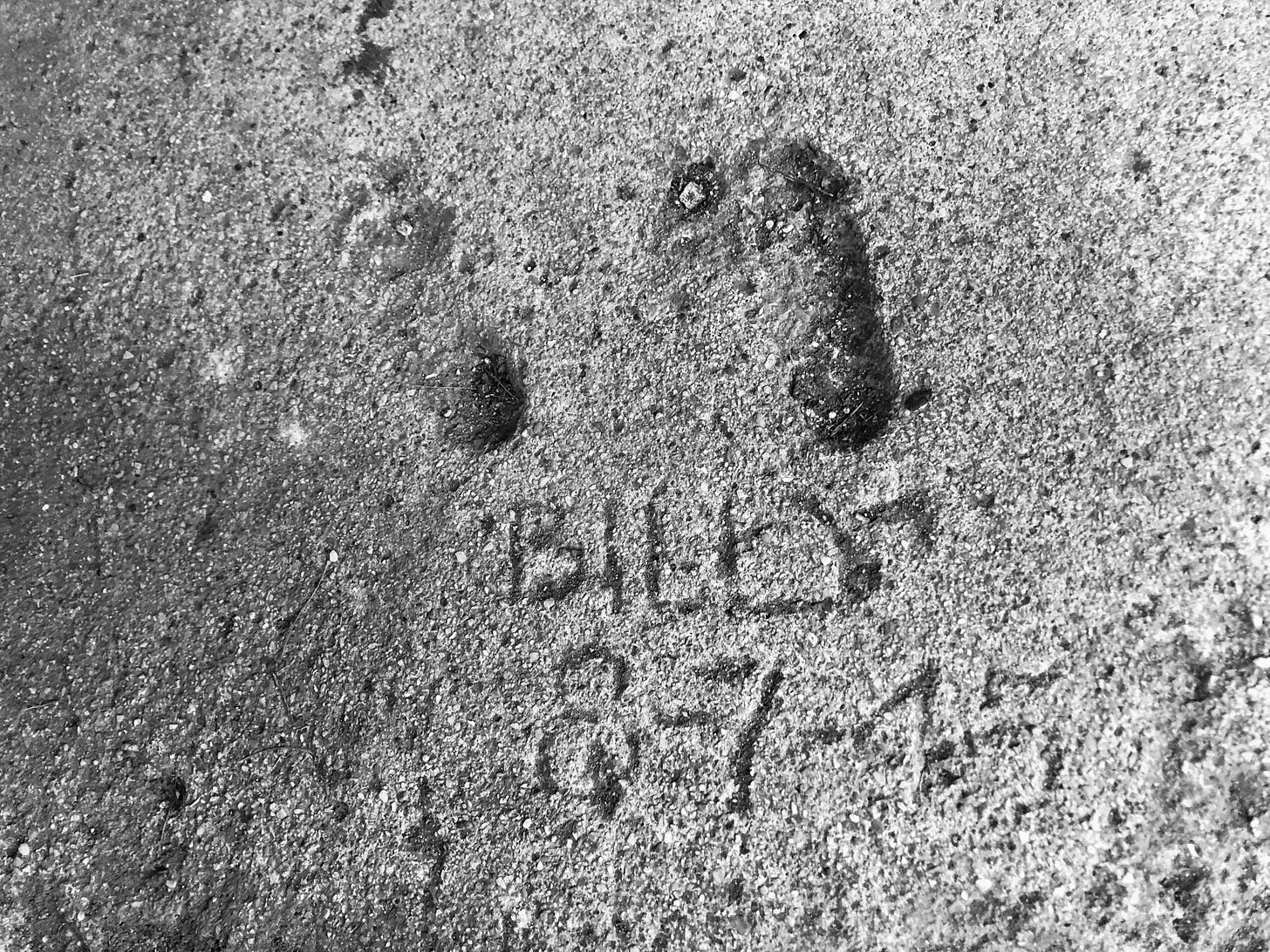Not far from my house in the busy downtown area of a nearby village is the new and unlikely home for a family of birds. My wife spotted it the other evening. Tucked inside the letter C in the big 3D sign of the U.S. Post Office building was what appeared to be a mother wren and her recently hatched babies. What a spot. Ingenious, really. Protection and easy access. Even a small landing area, a perch to feed and watch over the young.
My wife showed me the photos she had taken of the bird and its nest, and all I could think about was why that mother bird, searching for days or maybe weeks, for the perfect spot for her coming family, had chosen not a leafy maple or tall strong oak, but instead a manmade alphabetical cranny as its most desirable place to rest.
How and why do we choose our home?
Certainly much is about family and work. We live where those we love are nearby or close to the place where we make our living, at least in the pre-pandemic world. Some of us, however, choose our homes quite differently, making the conscious decision to pick a place that matters most to our sensibilities and our soul rather than one out of necessity or convenience. We choose a home—a geographical attitude and longitude—that fits our inner selves—the surfer who lives by the sea, the nature lover who resides in a mountain cabin. Family and jobs are secondary at best.
I have lived in many homes in my life from my boyhood Cape Cod style house to a cinderblock dormitory to a tiny city apartment to four-bedroom suburban homes. Today, I live with my wife and dog in a small 1940s brick ranch. My wife has turned the land around it into wonderful gardens and I have an outbuilding—a small shed—where I work that is my sanctuary. And those who have lived before us in this house, in its many iterations, have left a bit of themselves behind. One notable mark is in the concrete in front of the driveway, small imprints of a child’s feet, and written in wet cement: Billy. 8-7-45.
I have left a bit of myself behind in every place where I have lived, although maybe not as permanently as a cement imprint. But undoubtedly a bit of myself is in every one of those apartments, townhomes, and houses. I remember the pen marks on the inside of a closet where I had measured the physical growth of my sons, marks maybe now painted over but still on the wall underneath that second coat.
It is true that our homes, no matter where they are, define us in some way. They are extensions of our being. Psychologists say this is the reason we mow our lawns, decorate out living rooms, tend to our gardens. The home is part of how we hope the world will see us. In Western cultures the home is somehow separate from our inner self. In the East, it is not the case. Home is who you are. It is an integral part of the self. We may move around a great deal in both modern versions of these societies, but it appears in the West this is mostly due to economic issues—what we can afford or where to find the better schools. In the East, there is evidence that that is not the driving force. This is not a new concept. Julie Beck wrote about it in The Atlantic more than 10 years ago when she considered how home, family, and work come together to define us. The roots of what she studied are ancient. Our home, where we live, is the connective tissue between who we are inside and who we are outside. It is a symbol of the marriage between self and the world.
It was certainly unlikely that the mother bird in the post office sign was considering any of these lofty existential concepts while she was gathering sticks and twigs to fashion her nest. But maybe somewhere deep inside her tiny brain, somewhere in the unexplainable animal DNA, the same sort of synapses that fire in our minds were also firing in hers, formulating purpose and joy in the act of nurturing her babies and herself.
A few years ago, I wrote a book about the concept of finding our place in the world. The Consequence of Stars: A Memoir of Home was published by Adelaide Books in 2019.





At times in Life, I chose purpose then chose necessity & convenience as Life happened. At this time in Life returning more yo the soul connection that is expressing. I have liked some choices more than others, but I Love choosing my destiny & the Life I have lived with so much more yet, to come!💜Thanks, David.
I liked this story because I do believe that we leave something behind when we move on. I'll send you one of my recent poems that speaks to that theme